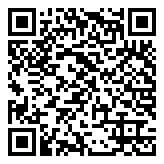

In today’s interconnected world, health has become one of the most pressing dimensions of international cooperation. Pandemics, climate change, and unequal access to healthcare highlight the importance of Global Health Diplomacy as a critical tool to bridge health and foreign policy. This discipline combines the principles of public health and international relations to promote collaboration between governments, international organizations, and private sector actors.
This course is designed for executives, team leaders, and specialists in both government and private institutions across the Middle East and North Africa. It provides a deep understanding of how health diplomacy shapes global security, fosters international negotiations, and strengthens strategic cooperation in addressing cross-border health challenges.
Global Health Diplomacy is no longer a niche concept but a necessity for international cooperation. It equips leaders and professionals with the skills to negotiate effectively, respond to health crises, and foster partnerships across borders.
This program empowers participants with comprehensive knowledge, practical tools, and case-based insights that can be directly applied in their institutions to strengthen both national and global health security.
